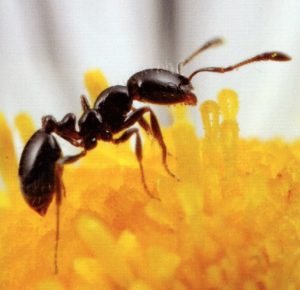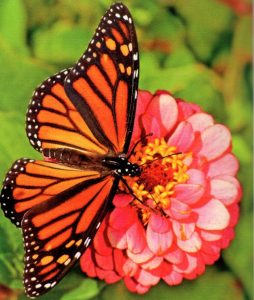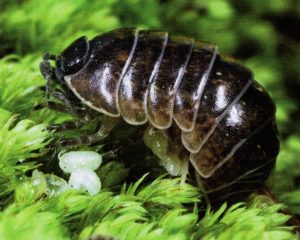For the purposes of this article, I will use the word “insect” for all of the animals in the phylum Arthropoda. Arthropods lack backbones and are characterized by having a tough outer skeleton (exoskeleton). In Arthropoda are the six-legged insects, the eight-legged arachnids, the centipedes and millipedes, and the crustaceans.
Insects are so common that everyone is familiar with them to one extent or another. It is understandable why they were created by God in the beginning since they pollinate crops, control pests and weeds, provide food for wildlife, recycle nutrients, and produce valuable products like silk and honey. Since the time of the Fall and the institution of the curse, humans have had to deal with the harm insects can cause such as spreading disease, destroying crops, infecting food stores, and causing the decay of structures.
How and when were these marvelous insects created according to the Bible? There are at least two verses that provide that information.
For in six days the LORD made the heavens and the earth, the sea, and all that is in them, but he rested on the seventh day. (Exodus 20:11 NIV)
He [the LORD] is the Maker of heaven and earth, the sea, and everything in them—he remains faithful forever. (Psalm 146:6 NIV)
From this information, along with what we are told in Genesis chapter 1 regarding the six-day creation, flying and swimming Arthropods were probably created on Day 5 and the land Arthropods were probably created on Day 6.
Little Black Ant
The question is sometimes asked, prior to the global Flood did God bring to Noah one of each kind of insect to be saved on the ark? The two key verses to answer this question are Genesis 6:17 and Genesis 7:22.
I am going to bring floodwaters on the earth to destroy all life under the heavens, every creature that has the breath of life in it. Everything on earth will perish. (Genesis 6:17 NIV)
Everything on dry land that had the breath of life in its nostrils died. (Genesis 7:22 NIV)
I think the key here is that we are to understand that insects do not have the “breath of life in them” nor do they have nostrils. The animals in the phylum Arthropoda could have survived the Flood by being able to survive under the water or by being able to live on floating vegetation mats that can be assumed to have existed during the one-year period of the Flood. God did not intend for all of the sea creatures or all of the insects to be wiped out. Only those creatures that lived on the land and had the breath of life in them were destined for death. So those are the kinds of life that were saved on the ark along with eight human representatives in order to replenish the earth after the cataclysmic global Flood judgment.
Boxelder Bug
Genesis 7:14 provides a description of what was on the ark:
They had with them every wild animal according to its kind, all livestock according to their kinds, every creature that moves along the ground according to its kind and every bird according to its kind, everything with wings. (Genesis 7:14 NIV)
They had every beast after his kind and all the cattle after their kind, and every creeping thing that creepeth upon the earth after his kind, and every fowl after his kind, every bird of every sort. (Genesis 7:14 KJV)
How do we understand the clause in Genesis 7:14 in the NIV, “Everything with wings”? Many insects have wings, and we know they had wings prior to the Flood from inspection of insect fossils found in the rock record. The KJV does not translate the Hebrew in a manner that would cause the confusion of the NIV translation. If we look at similar passages in Ezekial 17:23, Deuteronomy 4:17, and Psalm 148:10, the NIV translations are all according to the understanding that the Hebrew does not intend to say that insects are included in the category of those with wings, included are just birds of every sort.
Monarch Butterfly
I think too that it could be that insects were possibly part of the food for mankind prior to the Fall. This would follow from our discussion of what category of life that the insects were placed into by God. Similarly, there would have been no expectation that Adam would have been expected to name all of the insects at the time he was naming the animals as related in Genesis 2:19-20.
Common Pill bug
Today we thank God for the wonderfully engineered insects. To Him we extend all the glory.
J.D. Mitchell






